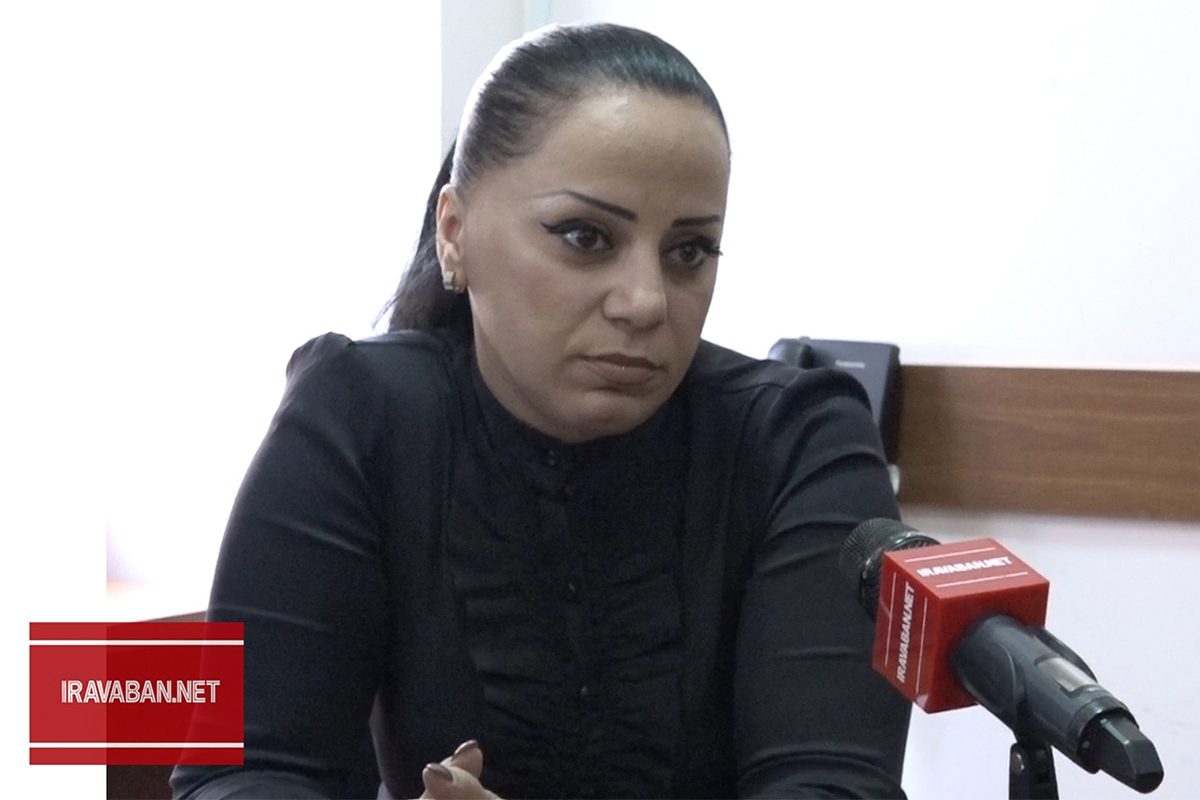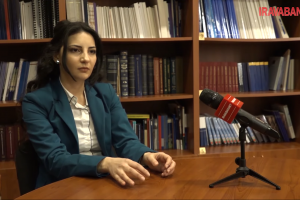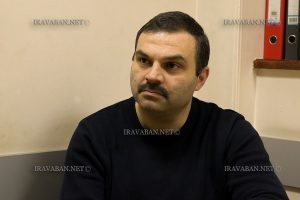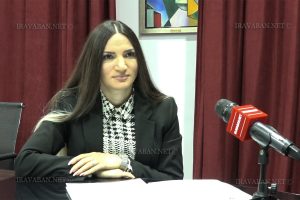Vetting of advocates from a legal point of view is not allowed, and at the moment we do not have any procedure related to it at the moment. Advocate Tamara Baghdasaryan said in an interview with Iravaban.net, referring to the topic, that the Chairman of the Supreme Judicial Council Gagik Jhangiryan had recently expressed an opinion in his speech about the vetting of advocates.
“I do not know what they will do in the future, what legislative innovations they will try to make, but at this moment, perhaps, they are just saying to say, lets hope, they will not start developing procedures in connection with that,” the lawyer said.
She noted that the advocate is an independent person and has no dependence on any official, the function is to defend in the interests of the client, and the only employer of the lawyer is the client with whom the latter has a relevant contract. “The client can evaluate, accept or not accept his/her work. I don’t know what the vetting has to do with this,” Tamara Baghdasaryan said.
Referring to the fact that Gagik Jhangiryan based his opinion on the fact that today many lawyers are gaining recognition, as they are very easy to communicate with law enforcement agencies and courts in various cases, she said.
“If the lawyer acquires recognition, does that mean that he should be vetted, if that recognition is just recognition? And if Mr. Jhangiryan’s words had a subtext, and if the vetting refers to that, those recognitions are criminal acts, and why we have a whole Criminal Code, the Criminal Procedure Code for that, and we can apply those structures and such people notwithstanding the circumstance whether they are or are not lawyers may be brought to a corresponding field. But it is inadmissible to connect all that with purely advocacy. There are other procedures for that, there is no need to take the whole Advocacy and carry out vetting.”
According to Tamara Baghdasaryan, the advocate has no superior. “We have a Chamber of Advocates, which regulates the general work of advocates, but can never interfere in the implementation of the advocate’s actions in any case. Therefore, the advocate does not have a superior body. If an advocate commits an act that is outside the law, perhaps even criminally prosecuted, it goes to a completely different domain. If the vetting will be manifested by accusing the lawyers, it is not vetting, they are criminal cases that can affect everyone,” she said.
Speaking about the claims of some experts that if vetting is the basis for the reform of the advocacy institute, then that reform can be carried out by dividing the single chamber into unions, the advocate said:
“In my opinion, the advocacy should be united, and I am against several unions. Advocates must be united in one structure in order to ensure the protection of the public interests. Our relationship with that structure is conditioned by certain factors. We have functions, for example, we have mandatory trainings by law, which are organized by the Chamber of Advocates or take appropriate measures in case of violation of advocates’ interests, etc. I do not see the purpose of having several unions. Strength is always in unity.”
The Advocate thinks that the advocacy is going its own way. However, she brought the example that at this moment the advocates dealing with criminal cases are facing very serious challenges.
“Because from July 2022, our whole field of criminal law and criminal proceedings is completely changing. And to add some other reforms to all this, we will get entangled and will confront the clients with the fact. The problem at the moment is that all efforts should be made to train lawyers and act with changes,” she said.
The lawyer mentioned that the training courses have already been organized by the Chamber of Advocates.
“I have been present to almost all trainings, but out of more than 2,500 lawyers, about 50 lawyers participate in each course, and the faces are repeated. I cannot say that others do not train elsewhere or do not read the new legislation, but all the same, when the authors present the codes they have written and it is discussed among specialists, a very effective training course is taking place. We will have a situation where the whole field will change and we will have many lawyers who will not be aware of when it changed or what changed. The practicing lawyers should more be integrated into the new legislation than think about other reforms,” Tamara Baghdasaryan concluded.


















